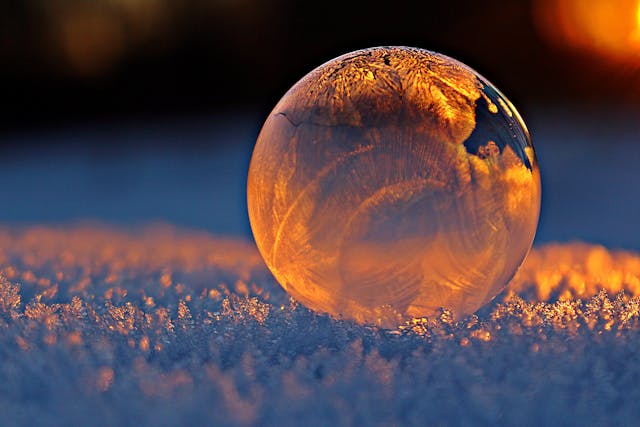Comments
- No comments found

Winter in Alaska brings with it a plethora of exhilarating sports and activities.
From skiing down picturesque slopes to engaging in intense ice hockey matches, Alaskan sports enthusiasts are no strangers to the thrills of winter sports. However, amidst the excitement and adrenaline rush, it is essential to address the often-overlooked aspect of oral health concerns in extreme conditions.
In this article, we will dive into the impact of cold weather on oral health and provide valuable insights and tips for maintaining optimal oral health during your favorite winter activities.

Winter sports come with their fair share of risks, and oral injuries can be relatively common. Falls, collisions, and impacts can lead to tooth fractures, dislodged teeth, or even knocked-out teeth. The force generated during these events can result in significant damage to your oral structures. Additionally, the extreme cold temperatures can exacerbate existing oral health conditions, such as tooth sensitivity. It's essential to understand the potential risks and take preventive measures.
To prevent these types of injuries, you should prioritize using mouthguards. A mouthguard is a protective device that can significantly reduce the risk of oral injuries by absorbing and distributing the force of impacts. It acts as a cushion for your teeth, gums, tongue, and jaw, providing a barrier against potential damage. While generic mouthguards available in stores can offer a certain level of protection, it is highly recommended to opt for custom-fit mouthguards specifically designed for this. These mouthguards are created by dental professionals and are tailored to fit a unique dental structure, providing superior comfort and protection.
As we already stated, cold weather can significantly impact dental sensitivity. The drop in temperature can cause some individuals to experience a sharp increase in tooth sensitivity, leading to discomfort or pain. This sensitivity occurs because the exposed dentin, the sensitive tissue beneath the enamel, responds to the cold air. If you have ever experienced a sharp, shooting pain in your teeth when breathing in the cold winter air, you are likely familiar with this.
To minimize sensitivity issues, consider using desensitizing toothpaste. These toothpastes contain special ingredients that help block the nerve signals responsible for causing sensitivity. They can provide relief and protection against cold-induced discomfort. It is also important to avoid extreme temperature changes when consuming food or beverages. For example, drinking hot beverages immediately after being exposed to the cold can worsen sensitivity. Moderating the temperature of what you consume can help minimize potential sensitivity triggers.
It's crucial to maintain regular oral care routines. Brushing your teeth twice a day with a soft-bristle toothbrush and fluoride toothpaste, along with daily flossing, can help keep your teeth and gums healthy. This regular care can alleviate existing oral health conditions and prevent new problems from arising in the cold Alaskan weather. It is also recommended to visit an experienced dental professional for a comprehensive oral health evaluation and advice. They can assess your specific oral health needs and provide guidance on managing dental sensitivity during outside pursuits.
The food choices not only affect sports performance but also have a significant impact on oral health. A balanced diet that provides essential nutrients is vital for supporting physical activity and maintaining optimal oral health.
Calcium and vitamin D are two essential nutrients for strong teeth and bones. Calcium helps build and maintain the structure of your teeth, while vitamin D aids in the absorption of calcium. By including foods rich in these nutrients in your diet, such as dairy products, leafy greens, and fortified foods, you can support the health and strength of your teeth.
Proper hydration is also very important for maintaining oral health during winter. A dry mouth, often caused by dehydration, can increase the risk of tooth decay and other oral health issues. When your mouth doesn't produce enough saliva, it can't effectively wash away food particles and neutralize harmful acids produced by oral bacteria. Ensure you stay adequately hydrated by drinking plenty of water before, during, and after your activities.
It is also important to be mindful of your consumption of sugary and acidic foods and beverages. These can contribute to tooth decay and dental erosion, respectively. Winter sports activities may involve energy drinks, sports drinks, or snacks that are high in sugar or acidity. Be aware of their potential impact on your oral health and try to minimize their consumption. If you do indulge in these treats, remember to rinse your mouth with water afterward to help remove any lingering sugar or acid.
Alaska's vast expanse includes many remote areas where individuals may face unique challenges in maintaining their oral health. Accessibility to dental facilities can be limited, requiring athletes to equip themselves with knowledge and tools to overcome these obstacles effectively.
One of the first steps those engaging in winter activities in remote locations can take is to carry a customized oral health kit. Include essential items such as toothpaste, floss, mouthwash, and temporary dental wax. These items can help maintain your oral hygiene routine and address minor dental issues while on the go. The dental wax can be particularly useful for temporarily repairing broken or chipped teeth.

Winter in Alaska offers incredible experiences but also poses risks to oral health. By prioritizing preventive measures such as using custom-fit mouthguards, understanding and managing dental sensitivity, making informed nutritional choices, and addressing challenges faced in remote locations, snow sports enthusiasts can achieve a healthy smile and maximize their overall well-being. Engaging with dental professionals for personalized guidance and individual dental care is highly recommended. By taking good care of their oral health, sports lovers can ensure a healthier and more fulfilling experience. Stay safe, enjoy your winter activities, and keep smiling!
Leave your comments
Post comment as a guest